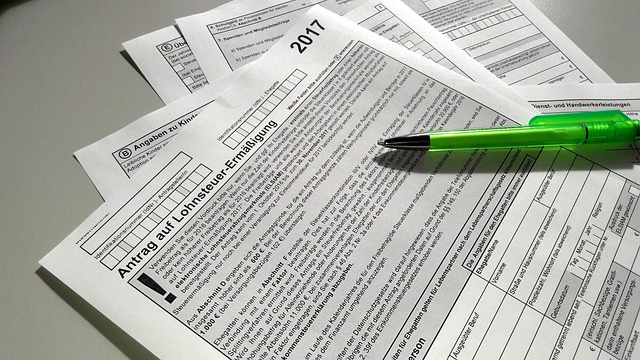Mental Health First Aid (MHFA) is a critical skill for recognizing and responding to mental health emergencies in substance abuse treatment centers with Christian-based programs. This training goes beyond awareness, offering practical tools for crisis management and recovery promotion. By teaching identifiers for common mental health issues and effective communication strategies, MHFA fosters nurturing environments during early sobriety journeys. These holistic programs, integrating spiritual support and evidence-based therapy, include group discussions, prayer groups, yoga, meditation, and nutrition, leading to successful outcomes tailored to individual needs. MHFA training equips clients with active listening, non-judgmental support, and guidance towards professional help, making them integral parts of their own and others' support systems for timely mental health intervention.
Mental health first aid (MHFA) training is transforming lives and communities, especially within substance abuse treatment centers. This empowering approach equips clients and staff with vital skills to recognize and support individuals in mental health crises. In this article, we explore the significance of MHFA, focusing on Christian-based programs in substance abuse treatment centers. By understanding mental health first aid, we can foster compassionate environments, offering hope and effective interventions during challenging times.
- Understanding Mental Health First Aid: A Lifesaving Skillset
- The Role of Christian-Based Programs in Substance Abuse Treatment Centers
- Empowering Clients: How MHFA Training Makes a Difference
Understanding Mental Health First Aid: A Lifesaving Skillset

Mental Health First Aid (MHFA) is a vital skillset that equips individuals with the knowledge and confidence to recognize and respond to mental health emergencies, potentially saving lives. This training goes beyond basic awareness; it provides practical tools for managing crises and promoting recovery. In today’s world, where stress, anxiety, and substance abuse are prevalent, MHFA becomes an essential asset, especially in Christian-based treatment centers focused on holistic healing.
The program teaches individuals to identify warning signs of common mental health issues like depression, anxiety disorders, and even psychotic episodes. By learning effective communication strategies, empathy-building techniques, and practical steps to de-escalate situations, MHFA trainees become better equipped to support those in distress. This is particularly beneficial for substance abuse treatment centers with Christian-based programs, as it fosters a nurturing environment where individuals can receive immediate assistance during their early sobriety journey, including coaching on healthy relationships and mindfulness techniques for stress relief.
The Role of Christian-Based Programs in Substance Abuse Treatment Centers

In many substance abuse treatment centers, Christian-based programs have emerged as a powerful tool in assisting clients on their journey to recovery. These programs offer a unique blend of spiritual support and evidence-based therapeutic practices, creating an environment that fosters both emotional healing and spiritual growth. By integrating faith with clinical care, these centers provide a comprehensive approach to substance abuse treatment, addressing the mind, body, and spirit. This holistic wellness model is particularly effective in helping clients develop coping mechanisms, enhance resilience, and rebuild their lives.
The benefits of Christian-based programs extend beyond religious observance. They often incorporate activities such as group discussions, prayer groups, and biblical studies, alongside traditional therapy sessions. Such practices promote a sense of community and belonging, encourage self-reflection, and provide clients with alternative ways to manage stress and trauma. Furthermore, these programs can be tailored to include specific elements like holistic wellness programs focusing on integrating yoga, meditation, and nutrition for deep healing, as well as trauma-informed care. This personalized approach ensures that each client receives care that resonates with their individual needs and preferences, ultimately contributing to more successful outcomes in substance abuse treatment centers.
Empowering Clients: How MHFA Training Makes a Difference

Mental Health First Aid (MHFA) training equips individuals with the skills to recognize and support those experiencing mental health crises, potentially saving lives. This evidence-based approach empowers clients, especially those in substance abuse treatment centers with Christian-based programs, by providing them with the knowledge to identify warning signs of deteriorating mental health or potential suicide risk.
Through MHFA training, clients learn active listening skills, how to offer non-judgmental support, and guide someone towards appropriate professional help. This is particularly crucial for early sobriety, where establishing healthy sleep habits through coaching and fostering healthy habits can be life-changing. By gaining this mental health literacy, clients become an integral part of the support system, ensuring that those around them receive timely Mental Health Help when needed most.
Mental Health First Aid (MHFA) training is a transformative tool, especially within substance abuse treatment centers featuring Christian-based programs. By equipping clients with the skills to recognize and respond to mental health crises, this initiative fosters a supportive environment that goes beyond traditional therapy. Empowering individuals to take charge of their well-being is key to long-term recovery and resilience, making MHFA training a valuable asset in the journey towards healing and restoration for those in these centers.






